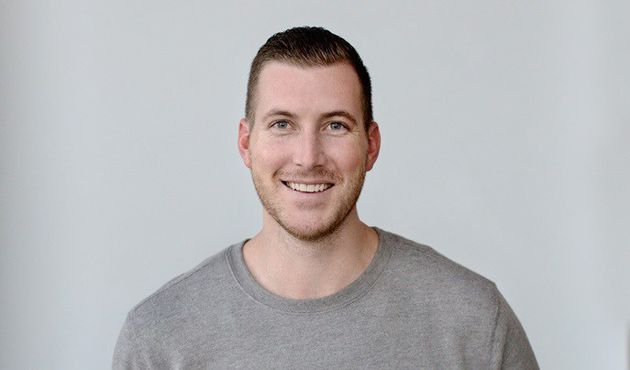I cannot compare myself to Pastor Andrew, but I can speak on behalf of many people in church leadership who suffer from depression and have suicidal thoughts at some point in their lives.
 Pastor Andrew Stoecklein. / Kayla Stoecklein Instagram.
Pastor Andrew Stoecklein. / Kayla Stoecklein Instagram.
Following the tragic news that Pastor Andrew Stoecklein took his life last weekend, I see a need for a dialogue centered on the issue of mental health and the prevention of suicide.
I have been in full-time ministry pastoring 5 years, and for more than 10 years leading Christian ministries, training church leaders and pastors.
During the last 25 years I have been very involved in achieving a B.A. in Theology and a BA in Journalism, and I have also committed to the preaching of the gospel, teaching, or writing.
Some know my story, which includes two suicide attempts, both followed by a week in intensive care.
I have managed to survive only by the grace of God. I cannot compare myself to Pastor Andrew, but I can speak on behalf of many people who suffer from depression and have suicidal thoughts at some point in their lives in the pastorate or in church leadership.
I was diagnosed with Bipolar depression (Bipolar Affective Disorder) when I was 24, and I have been medicated. I have even gone through those moments when one cannot explain very well what happens in one's head, but I can say that you feel terribly wrong.
Many people have prayed for me. I always had pastors who were close by, praying, even putting oil on my head asking God for a miracle.
When I went through my lowest points and felt that I was losing, it was not because I lacked a support system. I cannot blame any person.
I must clarify that not all types of depression are the same, each one has its own duration, some are recurrent, others return every so often, or they appear suddenly and go away.
I share here 10 points that may especially help churches, pastors and leaders:
1. Every pastor needs a prayer team, a group of people who accompany him and who he can trust if he feels he is very exhausted or discouraged at some point.
2. Every pastor needs pastor friends. This is not only for pastors. Isolation is the worst noone can feel. We need a person who shares the same burdens and can relate fully to the unique challenges of this type of ministry.
3. Every church leader should know the basic signs of depression in people, and be able to identify, support and, if necessary, recommend the person who is depressed to go to a specialist doctor.
4. Every pastor and church leader should be open to specialists to give talks and seminars about depression in churches.
5. It is very good for pastors and leaders to participate in a mentoring program, where more experienced pastors can help with confidence in the midst of the pastor or any church member's depressive crisis.
6. We all need a deep devotional life. If we disconnect from God in the name of the ministry we are in dangerous territory. If you see that you are disconnected from God because of suicidal thoughts, you should ask for help immediately.
7. We all must modify our lifestyle, diet, physical exercise, sufficient rest, walks, vacations and mini vacations periodically. Not stopping is not something that God will be grateful for. We must stop more often. Nor do I say that one must be still all the time, that is also a symptom of depression.
8. You need reliable members in the church. We must create an environment in which no one is afraid to tell if they a going through some difficulty, or are depressed. We do not blame any church, but it is important that we can trust each other.
9. The family is key. Churches with united families are an important asset. We do not know what happened with Pastor Andrew, he had a perfect family, but a key factor in detecting something is a united family that communicates with each other.
10. Finally, a summary: let's all hope that we can trust in Christ, and approach him in search of timely help.
Let's all have knowledge about mental health and depression, so that we could talk about these issues freely, and. we can even help the secular society by being helpers, volunteers, in the prevention of suicide. A key factor is Hope.
Perhaps as pastors we should go deeper into the subject of a practical Theology of hope.
And finally, be ready, be prepared for emergencies. This issue of depression and suicide has increased by 25-30% in the last 18 years, and will surely continue to increase.
It is good to have emergency numbers on hand, contact with specialist doctors, psychologists and psychiatrists.
And if another case happens again, move on. There is still a time when we will be on this earth under the power of pain, suffering and death.
We are prepared to prevent, and if we do not succeed, we support families, and anyone who is in the midst of a mental struggle with suicide.
I know from experience that this is a disease, but there are many factors that we do not yet know for sure.
Do not condemn anyone for going through a depression, but seek to help them in everything we can.
Wolfgang Streich lives is a pastor in Asuncion, Paraguay.

Las opiniones vertidas por nuestros colaboradores se realizan a nivel personal, pudiendo coincidir o no con la postura de la dirección de Protestante Digital.
Si quieres comentar o